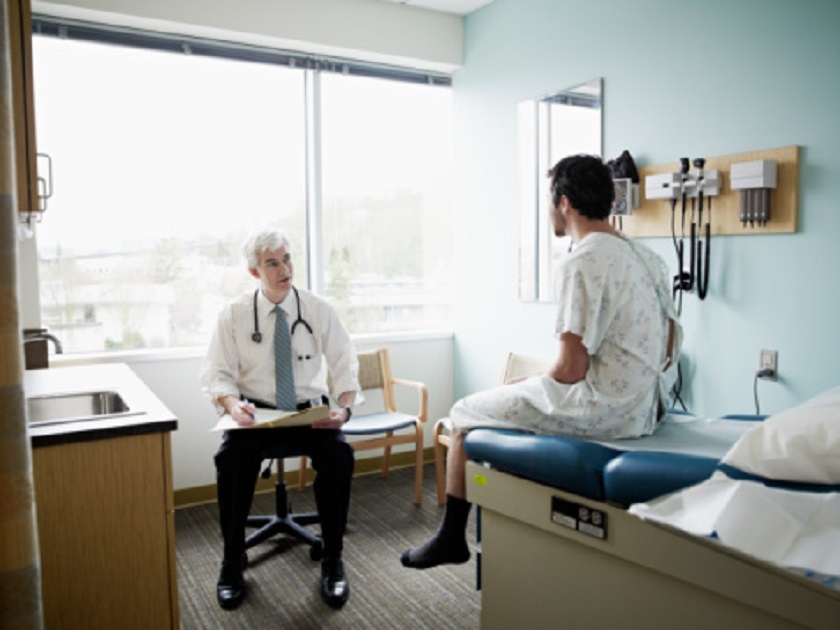Pap tests, mammograms, PSAs – there are handfuls of tests available to you to screen for various cancers but are you aware of when you should be taking them?

Getting screened for cancer, even if you aren’t showing any symptoms, is the key to catching cancer early, sometimes before the cancer even starts.
“Some people may not understand what screening is – they may think you get these tests when you have a concern, but that’s not the case with screening. You’re doing them even when you’re feeling fine … there is strong evidence that regular screening reduces the risk of death,” Dr. Linda Rabeneck, vice-president of prevention and cancer control at Cancer Care Ontario, told Global News.
READ MORE: Cancer cases slated to climb 40 per cent by 2030, Canadian report warns
“You’re getting screened to find cancer and it can be before cancer starts so it’s treated or something is removed, or you’re finding it at a very early stage. The earlier it’s diagnosed, the easier it is to treat and the better the outcomes,” Rob Nuttall, assistant director of cancer control policy at the society, said.
On Feb. 4, for World Cancer Day, Global News spoke to the experts for their rundown on cancer screening tests and when you should get them.
Cervical cancer
Stats: About 1,500 Canadian women were diagnosed with cervical cancer in 2016, according to cancer society estimates. Cervical cancer is when tumours start in the cells of the cervix. Another big concern is HPV or human papilloma virus.
READ MORE: Canadian doctors dispel cancer myths to mark World Cancer Day
The test: A Pap test is given to women starting at age 21, and continuing for every two to three years depending on previous results. Women can stop getting the Pap test at about age 70, especially after they’ve had three negative results. The Pap test is a simple swab for cells in your cervix to check for any cell changes that can be treated before they become cancer.
Breast cancer
Stats: Breast cancer is the most common cancer among Canadian women, excluding skin cancers. It’s also the leading cause of death from cancer in Canadian women.
The test: A mammogram, which is a chest X-ray looking for lumps or any abnormalities, is conducted on women between ages 50 and 74. Women should start talking to their doctors about screening and risk factors in their 40s though, according to Nuttall. You should be going for a mammogram every two years or so.
READ MORE: These are the other breast cancer symptoms you should be aware of
“We’re learning more that older women can benefit from screening so we’re encouraging women to do testing up until age 74,” he said.
If you’re considered at high risk because of family history or genetic factors, screening starts at a much earlier age — from 30 to 69.
Colorectal cancer
Stats: Colorectal cancer is cancer of the large intestine (colon), which is in the lower part of the digestive system. Rectal cancer is cancer of the last six inches of the colon. Together, they’re referred to as colorectal cancer, or colon cancer and bowel cancer.
READ MORE: Bacon, booze and obesity are increasing your risk of stomach cancer
The test: A stool test helps to determine risk of colon cancer in men and women starting at age 50 to age 75. It should be done every two years. It’s a take-home test in which patients swab a stool sample and take it to the lab to look for the presence of blood, an indication that there may be problems in your colon.
Prostate cancer
Prostate cancer is the most common cancer in Canadian men. It usually grows slowly and can often be completely removed. In 2016, it’s estimated that 21,600 men were diagnosed with prostate cancer.
The test: The prostate-specific antigen – or PSA – test is a simple blood test that looks at proteins made by prostate cells. It’s mostly found in semen but small amounts of PSA can also be found in the blood of healthy men.
READ MORE: Where $5 million of your Movember fundraising money went
The PSA test helps to find prostate cancer early in men who don’t have any signs or symptoms of the disease. It also checks for cancer in men who have signs or symptoms of prostate cancer.
Men should start talking to their doctor about prostate cancer in their 40s, especially if they have a family history of it. PSA testing typically starts in your early 50s.
Skin cancer or melanoma
In 2016, it’s estimated that 6,800 Canadians were diagnosed with melanoma.
READ MORE: Here’s how much you’ll lower your cancer risk by applying sunscreen
There is no age bracket for testing. Instead, you should constantly look out for signs and symptoms including:
- A new mark or spot on the skin
- A mole or spot that is changing in size, shape, colour or height (elevation or how much it is raised above the skin)
- A mole or spot that looks different from all of the other spots on your skin
- A mole or spot that is asymmetric (one side of the spot does not match the other)
- A mole or spot that doesn’t have a well-defined border (the edges are irregular, ragged, notched or blurred)
- A mole or spot that is not the same colour all over or has changed colour
- It may be shades of brown, black, pink, red, white or blue
- A mole or spot that is more than 6 mm across (about the size of a pencil eraser)
- A sore that does not heal
- Change in sensation of a mole or spot, including itching, tingling, tenderness or pain
- A mole or spot that is crusted or bleeding
Read more about World Cancer Day.
carmen.chai@globalnews.ca
Follow @Carmen_Chai



Comments